Calls for UK to act over violence tearing Sudan apart as mass grave found in Darfur: ‘We are doing nothing’
Those who have made it out of West Darfur alive have described it as ‘running from hell’, writes Tara Cobham, as Britain is urged not to sit on its hands over the ethnic killings being compared to the genocide of 20 years ago

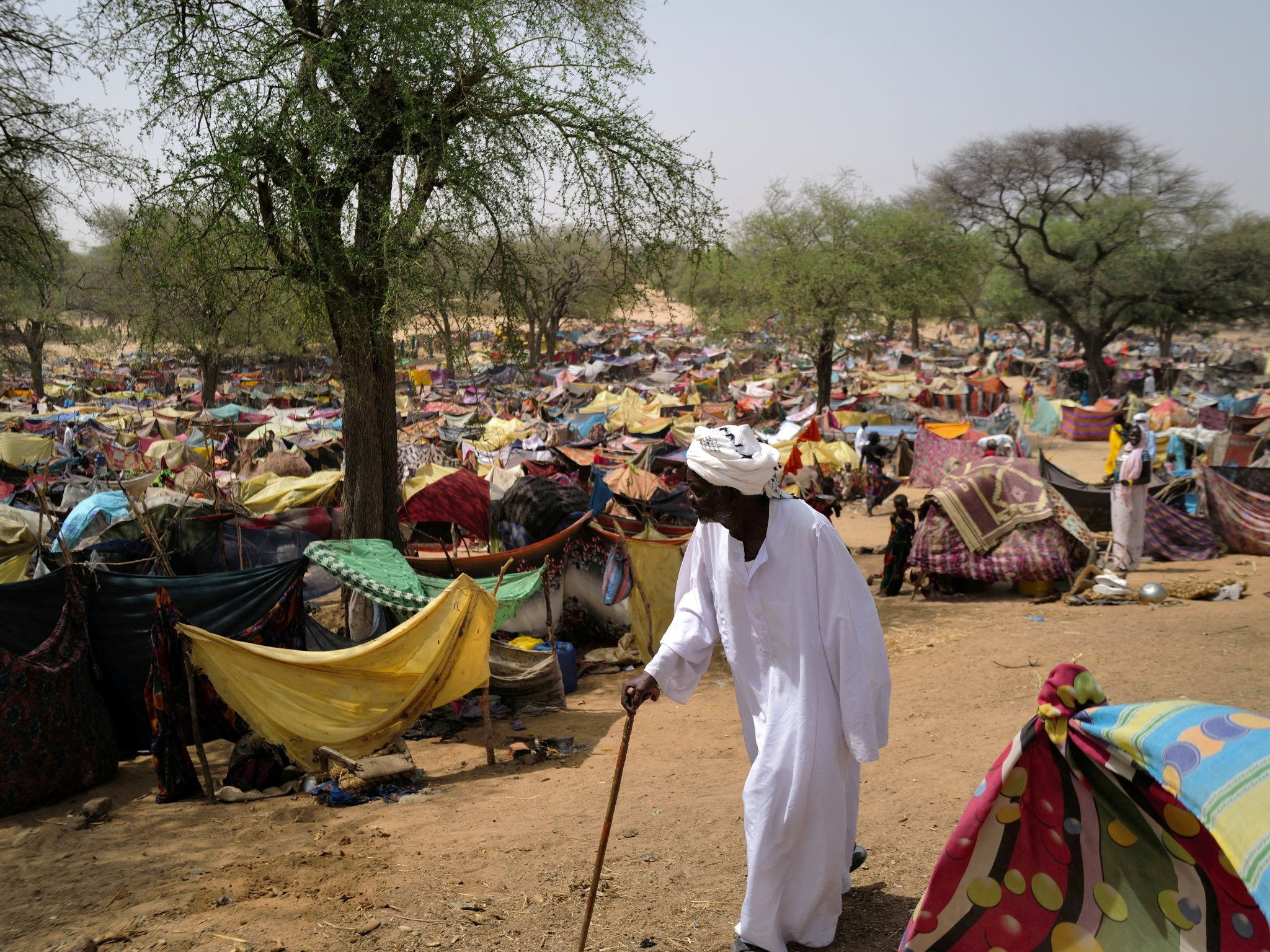
At least 87 people, including children, have been found buried in a mass grave in Sudan, the UN has said, as calls grow for the UK to act over the violence that has plagued the country for months. Those on the ground and from across the political spectrum believe the situation is comparable to the killings in Darfur that sparked international outcry in 2003.
Ethnically motivated bloodshed has escalated in recent weeks, in step with the fighting between rival military factions that erupted in April, and has brought the country to the brink of civil war. Thousands have died and millions have been forced from their homes by the broader conflict between Sudan’s army, led by Abdel Fattah al-Burhan, and the paramilitary Rapid Support Forces (RSF), led by al-Burhan’s former deputy, Mohamed Hamdan Dagalo, who is known as “Hemedti”.
The UN Human Rights Office said that the people in the mass grave – some of them from the ethnic African Masalit tribe – were killed by the RSF and an affiliated Arab militia. “According to credible information gathered by the Office, those buried in the mass grave were killed by RSF and their allied militia around 13-21 June,” a UN statement said.
But the RSF has denied being involved in any fighting in West Darfur and says it has “no connection” to events there.
The discovery of the mass grave is the latest incident to be reported from West Darfur’s capital, El Geneina, where The Independent has heard from witnesses who claim that teenagers are being rounded up and shot, and women and girls are being raped. People are said to have been told that this is being done in order to “destroy and change the DNA of the area”. One of those who made it out of the city said they were “running from hell”.
“What is happening in El Geneina is a genocide – we want this said out loud,” says Ibrahim*, who is sheltering in the neighbouring country of Chad, where his family have sought refuge after fleeing the city. He does not want his real name to be published, as this could jeopardise the safety of members of his extended family who are still stranded. “It’s been going on systematically.”
Urging the UK and the wider international community to take action, David Alton, a crossbench peer who is a member of parliament’s human rights committee, tells The Independent: “There is an unfolding genocide happening in Darfur and the international community is doing nothing.
“Mass graves are synonymous with 20 years ago. It is an appalling indictment of the abysmal failure of the international community that two decades later a commitment of ‘never again’ has been allowed to happen all over again. There is no end to the suffering which the people of Darfur have had to endure. We should hang our heads in shame.
“What started then has been a slow-burn genocide that never ended. The perpetrators were never held to account... and surprise, surprise, it is now happening again on a shocking scale.”
Lord Alton says the UK government’s response has so far been “lamentable”, adding: “I’ve spoken personally to ministers about this, and there is plenty of sympathy, but that is not matched by appropriate action.”
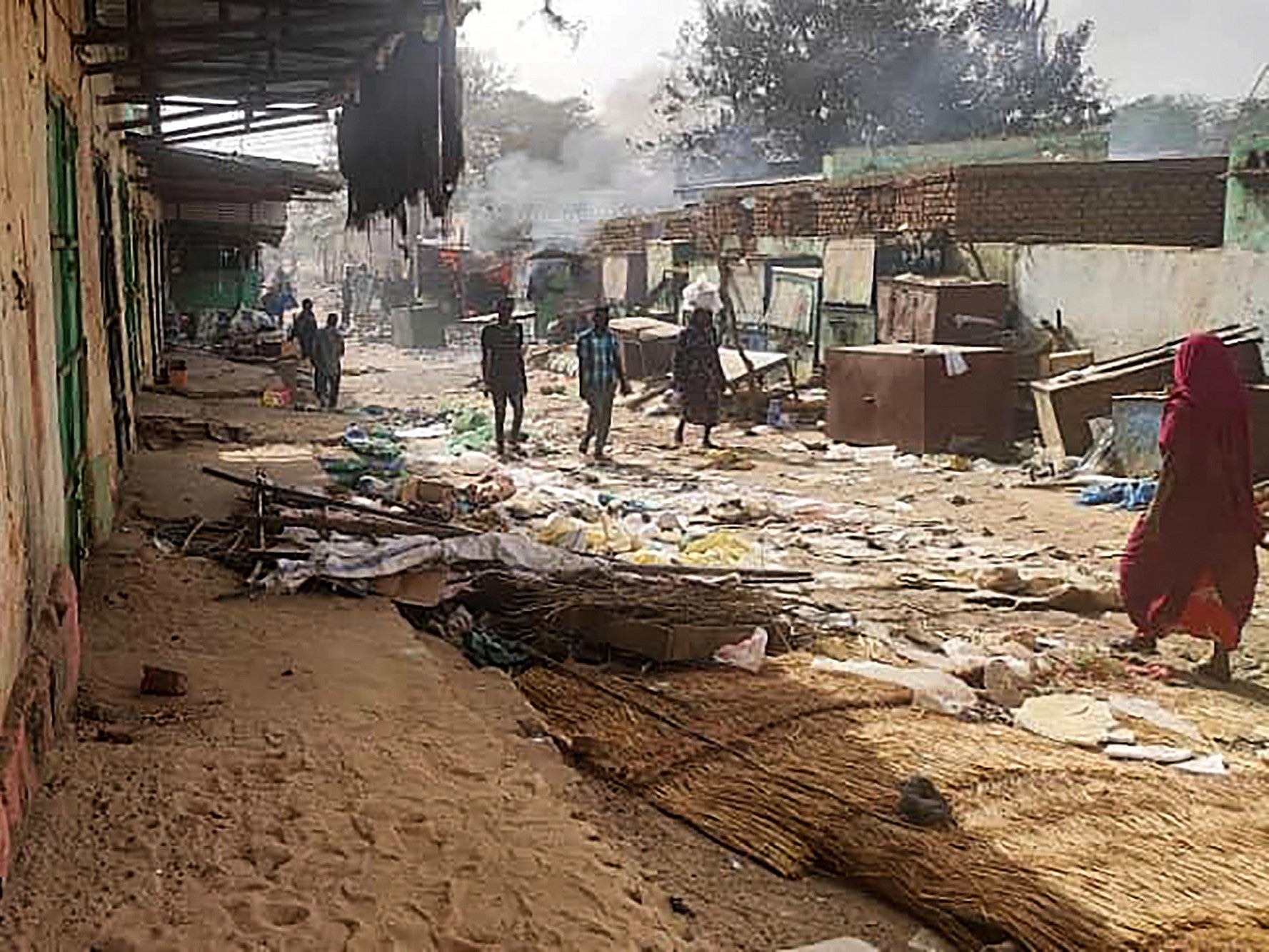
Following the discovery of the mass grave, the UN High Commissioner for Human Rights, Volker Turk, called for “a prompt, thorough and independent investigation into the killings” with those responsible being held to account.
The International Criminal Court (ICC) is investigating events in Darfur, noting the reports of killings, rapes, and crimes affecting children, an ICC prosecutor told the United Nations on Thursday. “The office can confirm that it has commenced investigations in relation to incidents occurring in the context of the present hostilities,” Karim Khan’s office said in a report to the UN Security Council.
ICC prosecutors are “closely tracking reports of extrajudicial killings, burning of homes and markets, and looting in El Geneina, as well as the killing and displacement of civilians in North Darfur and other locations across Darfur”, the report said. The court is also examining “allegations of sexual and gender-based crimes, including mass rapes and alleged reports of violence against and affecting children”, it said.
El Geneina, which has a population of around 250,000, has been under siege for more than two months, shortly after the conflict between the military factions broke out. In June, the West Darfur governor was killed soon after accusing the RSF of carrying out a genocide against the Masalit people.
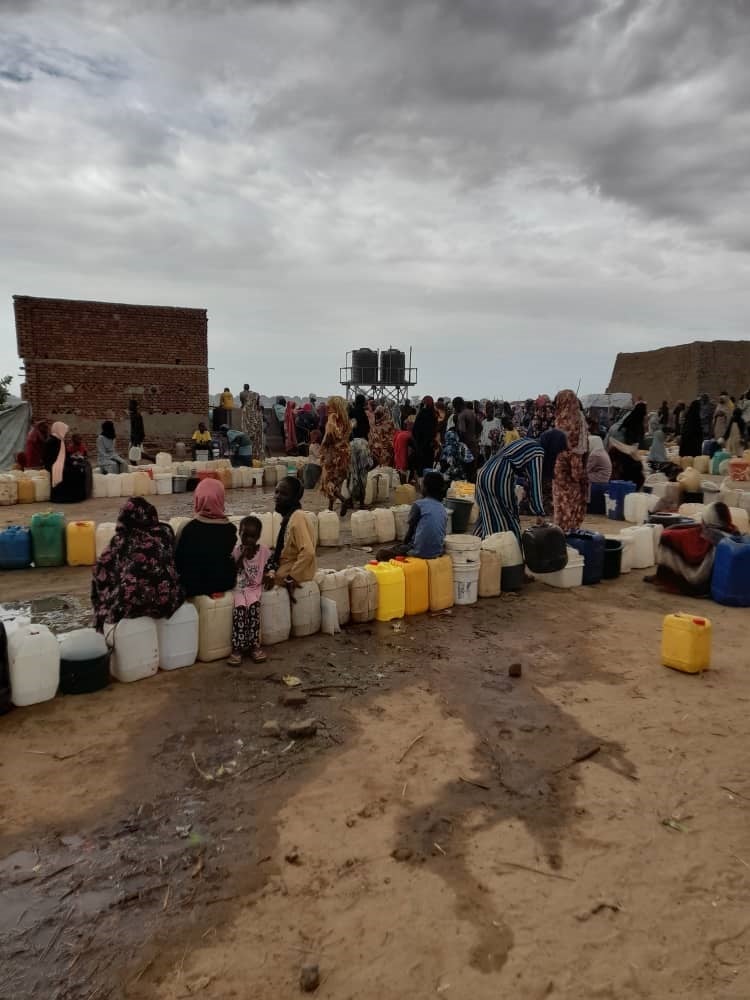
“The RSF suffocated El Geneina,” says Ibrahim. Describing destroyed water pumps, looted banks, burnt food markets and ravaged medical supplies, he tells of how his 86-year-old diabetic mother has gone for six weeks without medicine.
His family of almost 20, with the youngest being just a few months old, say they have been sheltering in their homes, afraid to step outside for fear of snipers. “For us, we see that death is moving closer every day,” says one of his brothers, who tells of streets littered with bodies, the stench of decomposing flesh hanging heavy over the city.
It was only when Ibrahim’s uncle was killed on 21 June that the family say they made the life-or-death decision to try to escape via the perilous 28km road to Adre, a town very close to Chad’s eastern border with Sudan, where tens of thousands of refugees are currently living in makeshift camps, seeking humanitarian aid.
The family say they drove through at least 10 checkpoints on the 12-hour journey. “Every moment, every single second we feel we are going to be killed,” says Ibrahim’s brother. They say they were insulted, pushed around, and robbed of their only remaining money in a “terrifying ordeal” – but they survived.
Ibrahim, finally made contact with his family when they got across the border. Weeks without hearing from them was a “feeling that is killing” and led to his being forced to take time off work, he says. He had been about to travel to his family in El Geneina for the holidays when war broke out, and he was evacuated in a UN convoy days later.
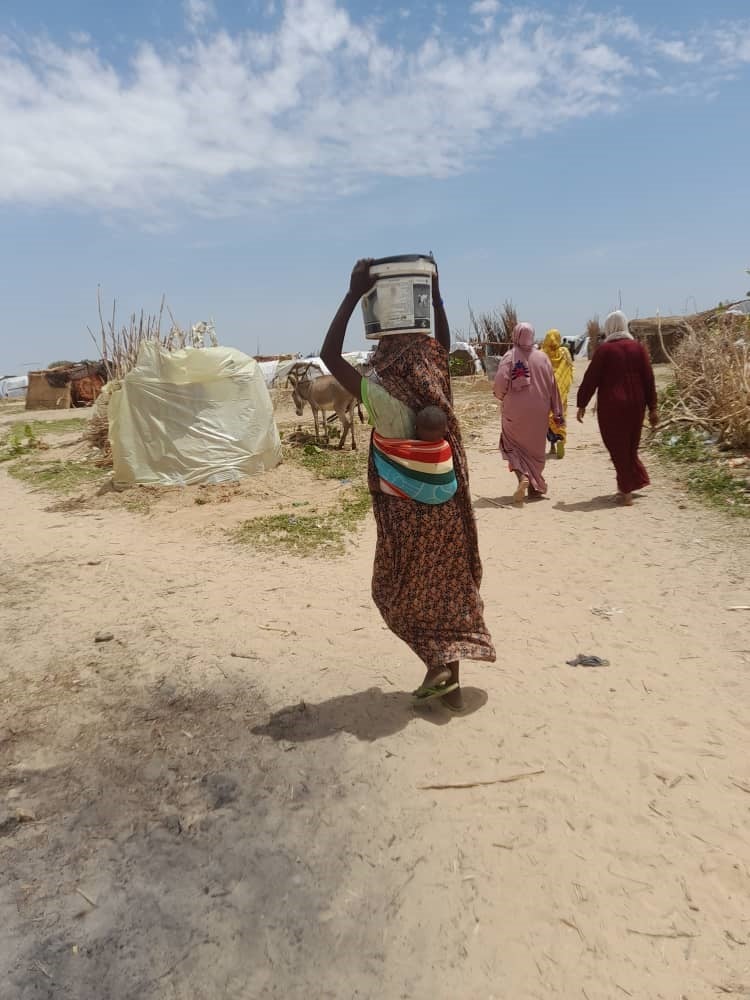
Now, he is in a city 100km inland from Chad’s border, desperately trying to find homes for his family amid rocketing rents and low availability due to the high demand created by Sudanese people seeking refuge, he says.
About 2.2 million people have fled their homes in Sudan, while 25 million people are in need of humanitarian aid, according to Vicky Ford MP, chair of the all-party parliamentary group on Sudan and South Sudan. She says the death toll in El Geneina alone now exceeds 5,000, and the number of injured has surpassed 8,000.
Ibrahim says the lack of support from the international community has caused him to lose hope. Like many others, he is calling for leaders to establish a safe passage along that 28km road to make it safe to evacuate civilians, or at a minimum the thousands who have been wounded.
Lord Alton travelled to Darfur in 2004 with Rebecca Tinsley, who founded her organisation Waging Peace in response to the horrors she witnessed there, and both took testimonies from survivors. Describing bodies there currently “being used as road bumps”, Ms Tinsley says: “The situation in Darfur now is possibly as bad as it was during the genocide, if not worse.”
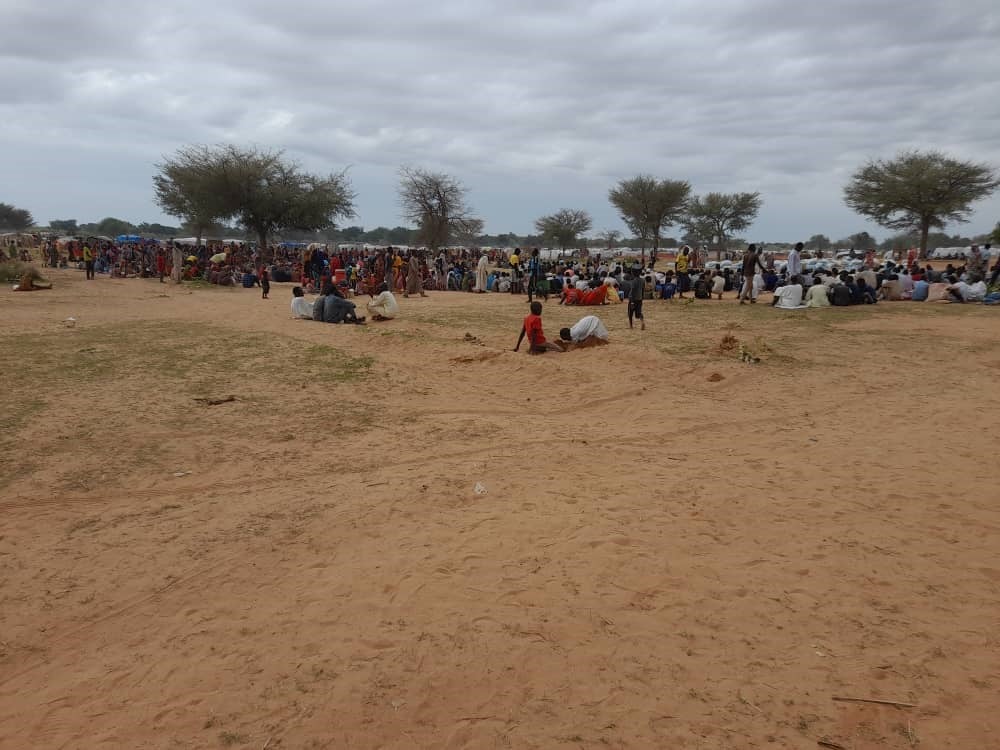
Ms Ford describes “civilians facing horror” as they are murdered, disappeared and raped in Khartoum and parts of Darfur, with lawyers, doctors and community leaders being targeted. “Again, atrocities are happening at all levels,” she says, adding: “What’s happening in El Geneina has also got an ethnic element – there are systemic ethnic attacks and cleansing of non-Arabs.”
A man who has a leadership role in the El Geneina community tells of being “targeted from the moment the war started”. He says he had to make the difficult decision to leave his wife and children at home and go into hiding, where he was stuck for weeks.
He says he finally managed to flee the city and ended up walking all the way from there to Adre, without any water or food, and constantly thinking, “They’re going to catch me, they’re going to get me now.”
Eventually, he says, he made it to the temporary camps across the border in Chad. Miraculously, he was reunited with his family there, and they all held each other and wept.
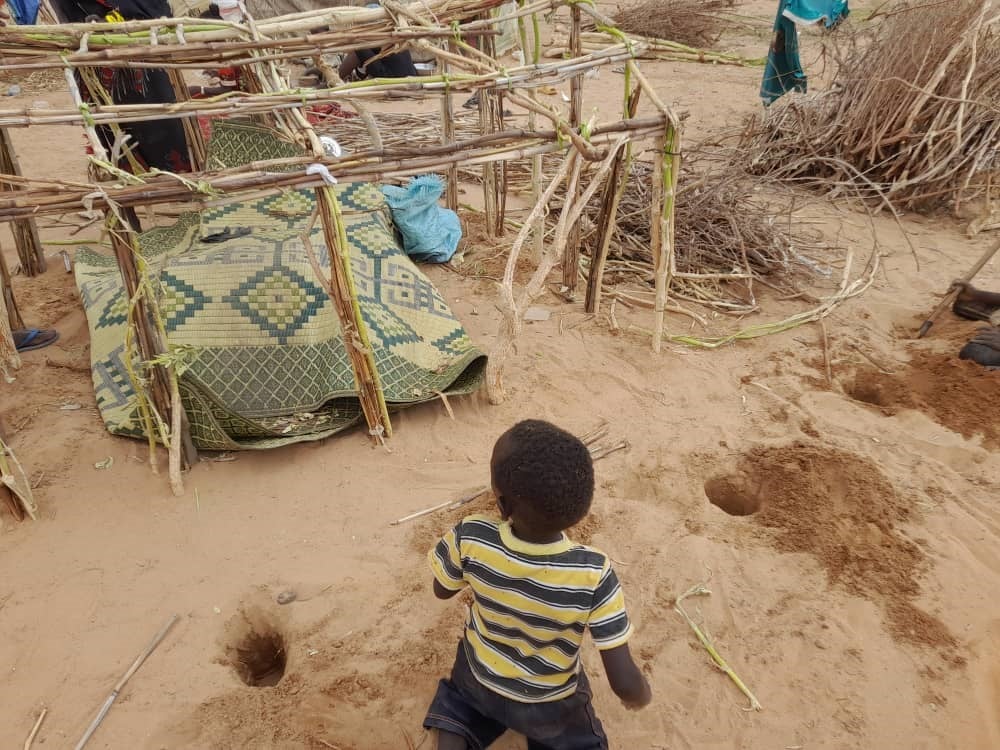
Without an urgent response, Ms Ford fears the violence against civilians will spread into other parts of Sudan or neighbouring countries, because of Sudan’s importance, size, and location “at the crossroads in Africa”. She adds: “There are risks that instability in Africa leads to more migration, then more instability in Western Europe – this is important domestically in the UK, too.”
The MP for Chelmsford says the British government is aware of Sudan’s importance to the UK, and has been having discussions with many of its international partners. She says that the international development secretary, Andrew Mitchell, “absolutely understands the critical nature of this situation and the risk of it spreading”. Although, she adds, “There are more questions about other potential steps the UK government could take, and I hope they ... take them as soon as possible.”
Ms Ford says the all-party group will be calling for measures including asset freezes, an arms embargo and a peacekeeping force. These are in addition to sanctions.
Mr Mitchell said: “The UK’s immediate objective in Sudan is to stop the violence and atrocities being committed, ensure civilians are protected, and push for immediate, safe and unfettered access for humanitarian organisations. The UK continues to support local peacebuilding activities in Darfur, working with international non-governmental organisations and civil society actors to end the conflict as soon as possible and support efforts to sustain a ceasefire.”
He said the UK has contributed more than £250m in humanitarian aid to Sudan in the past five years, while it recently announced £21.7m more, following an earlier £5m to support those fleeing the country.
*names have been changed to protect identities
Join our commenting forum
Join thought-provoking conversations, follow other Independent readers and see their replies
Comments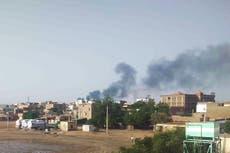
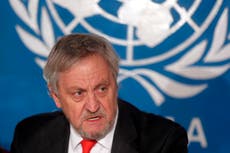

Bookmark popover
Removed from bookmarks